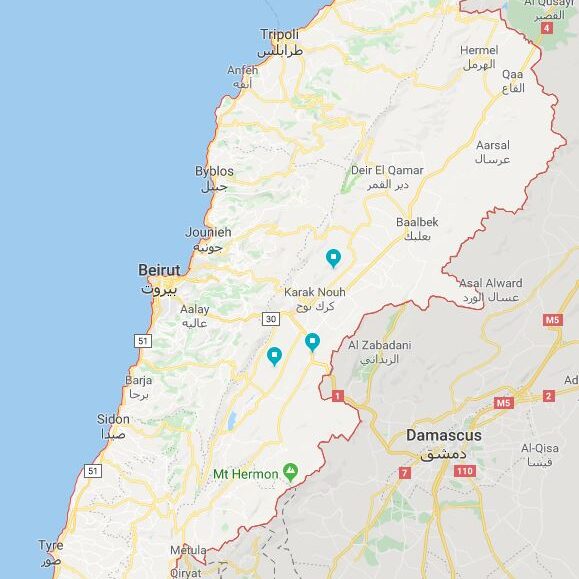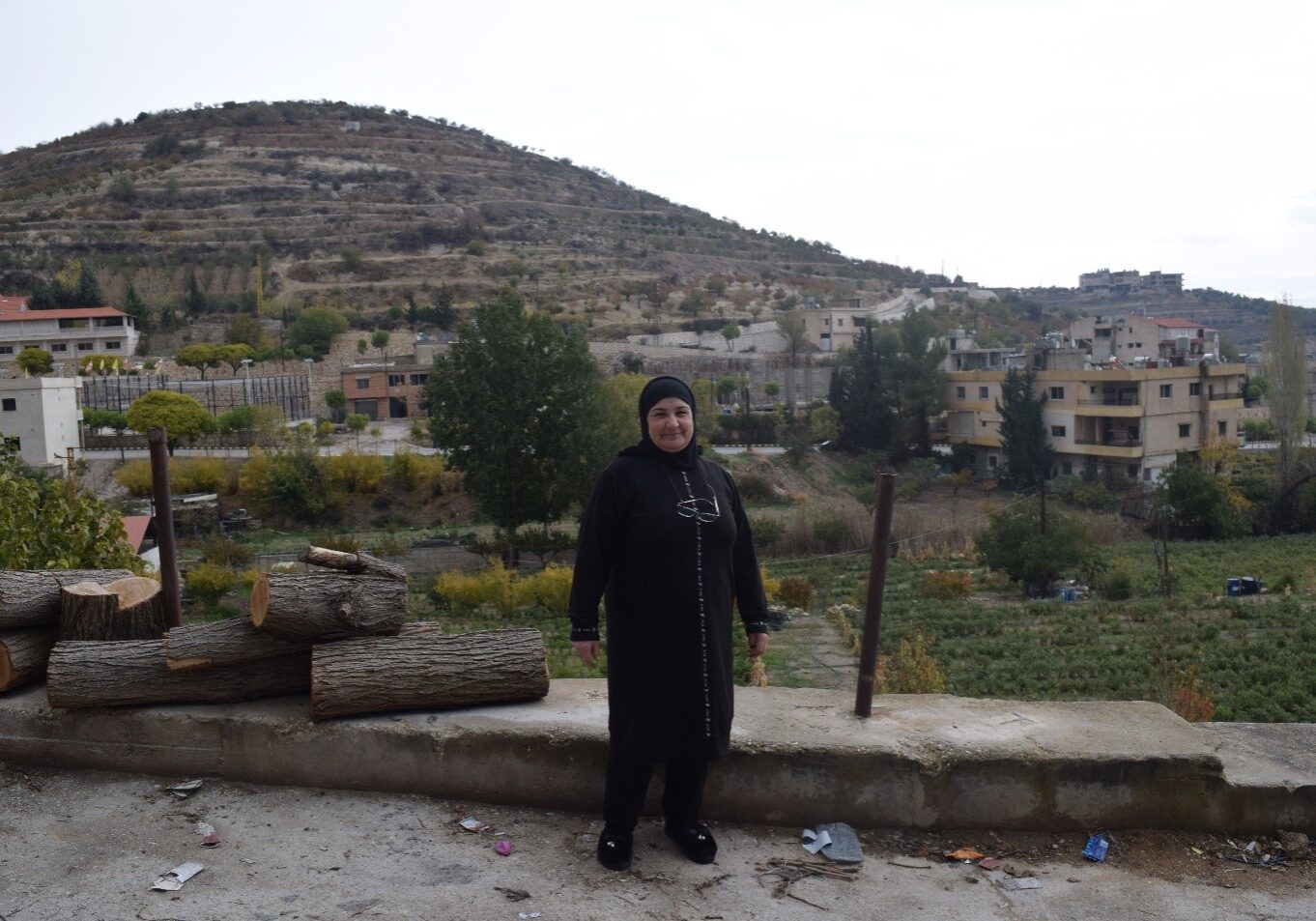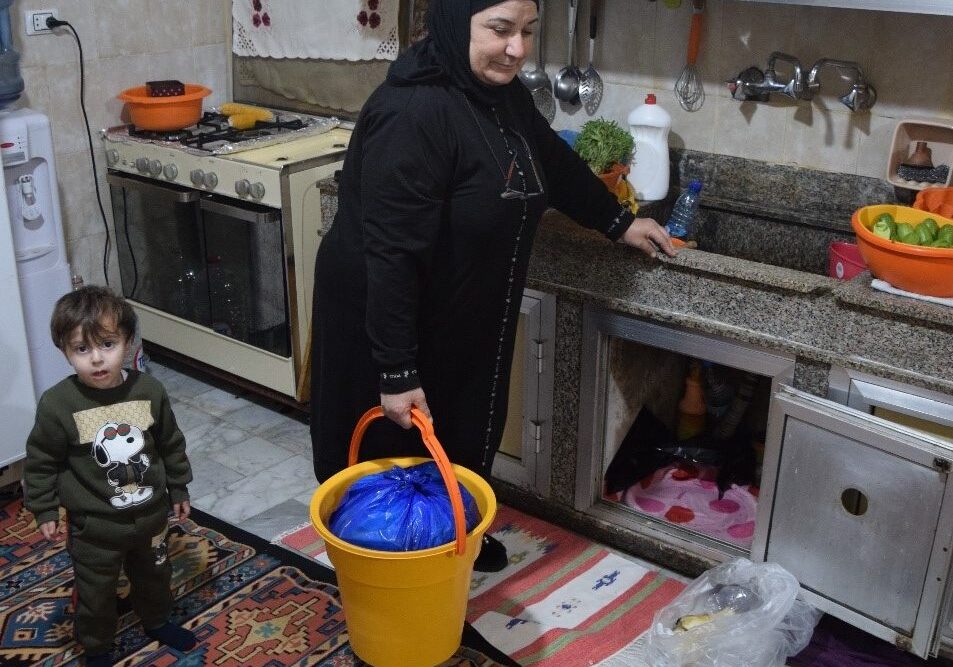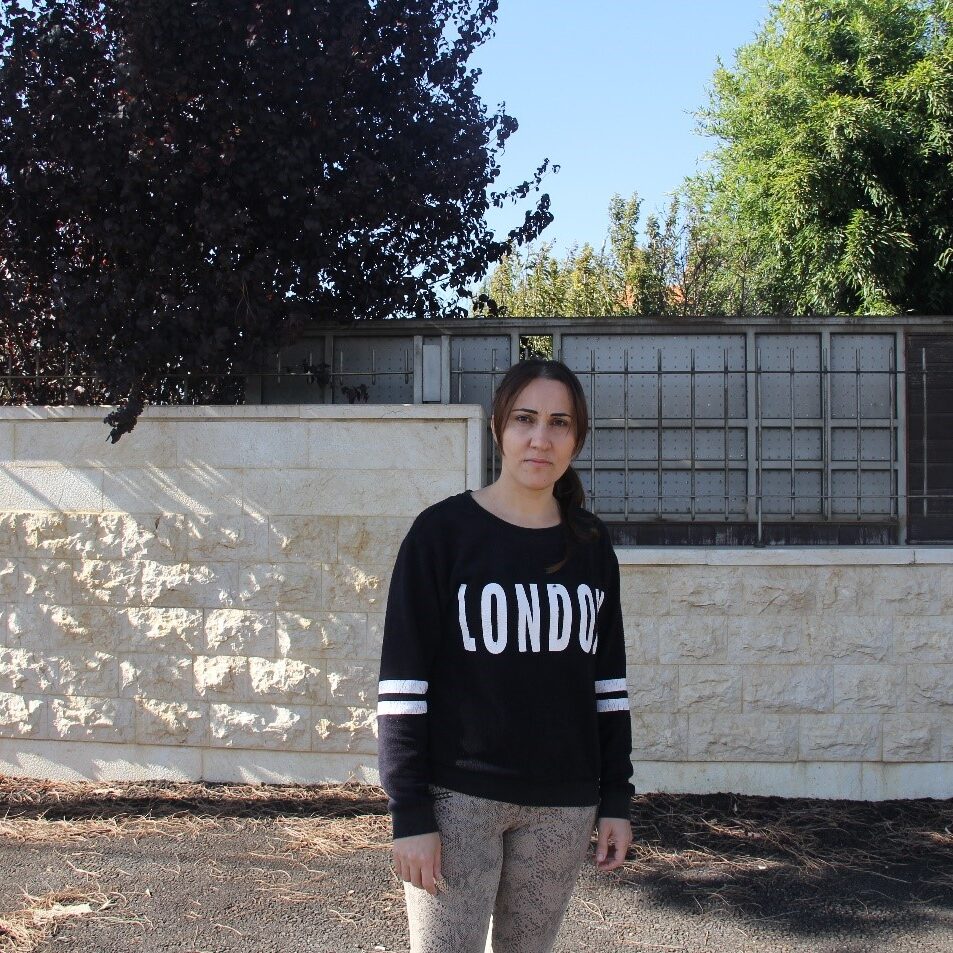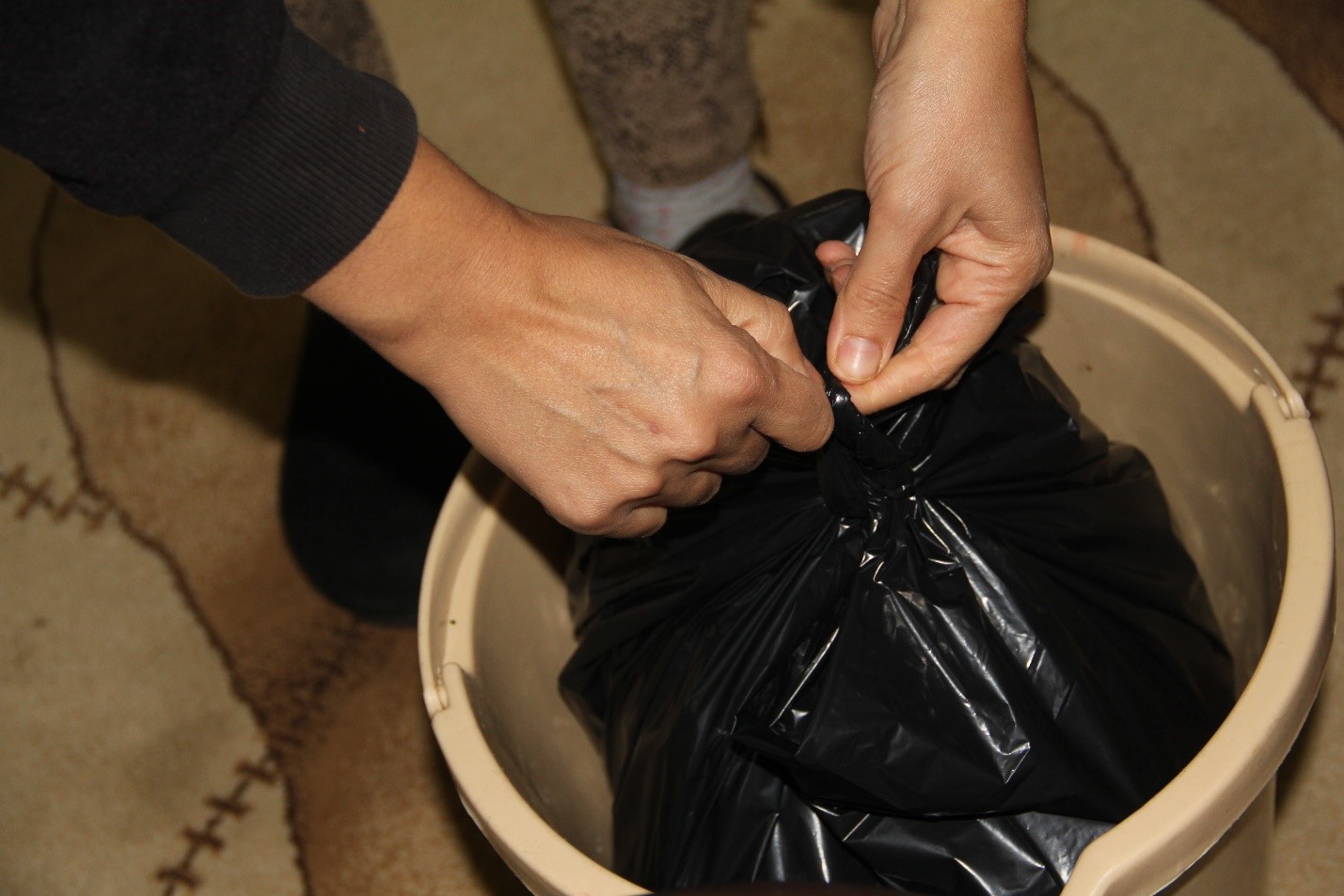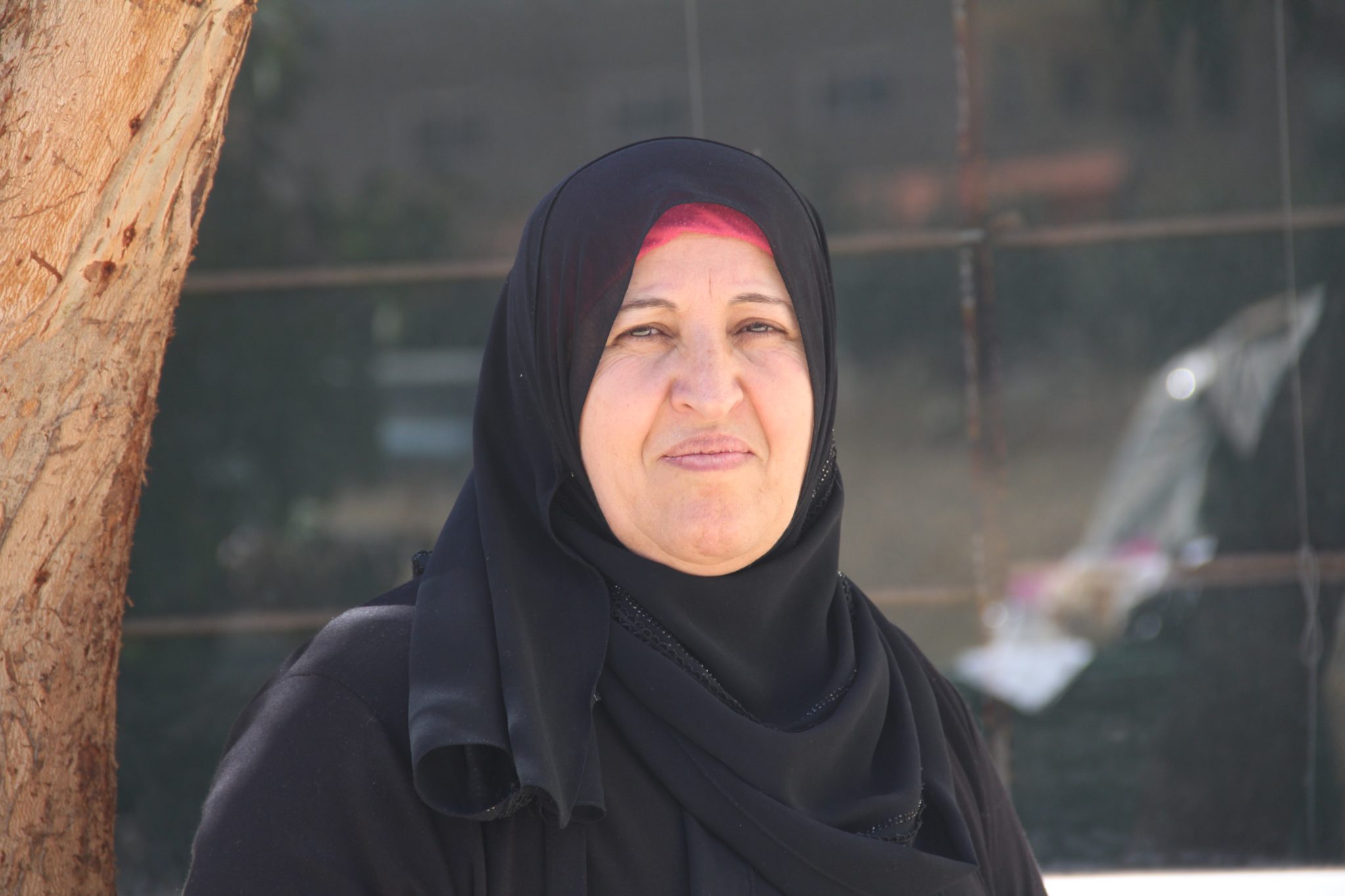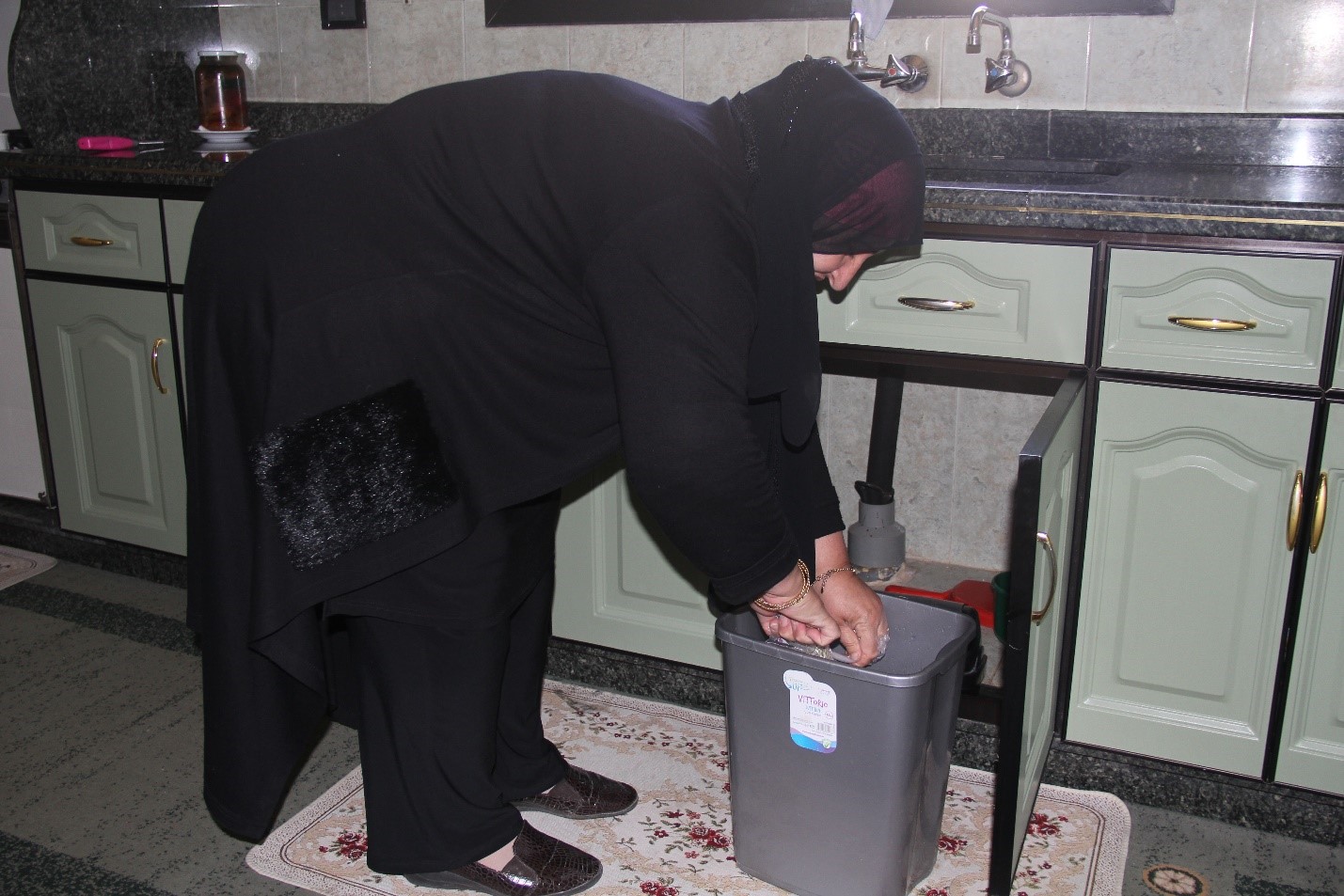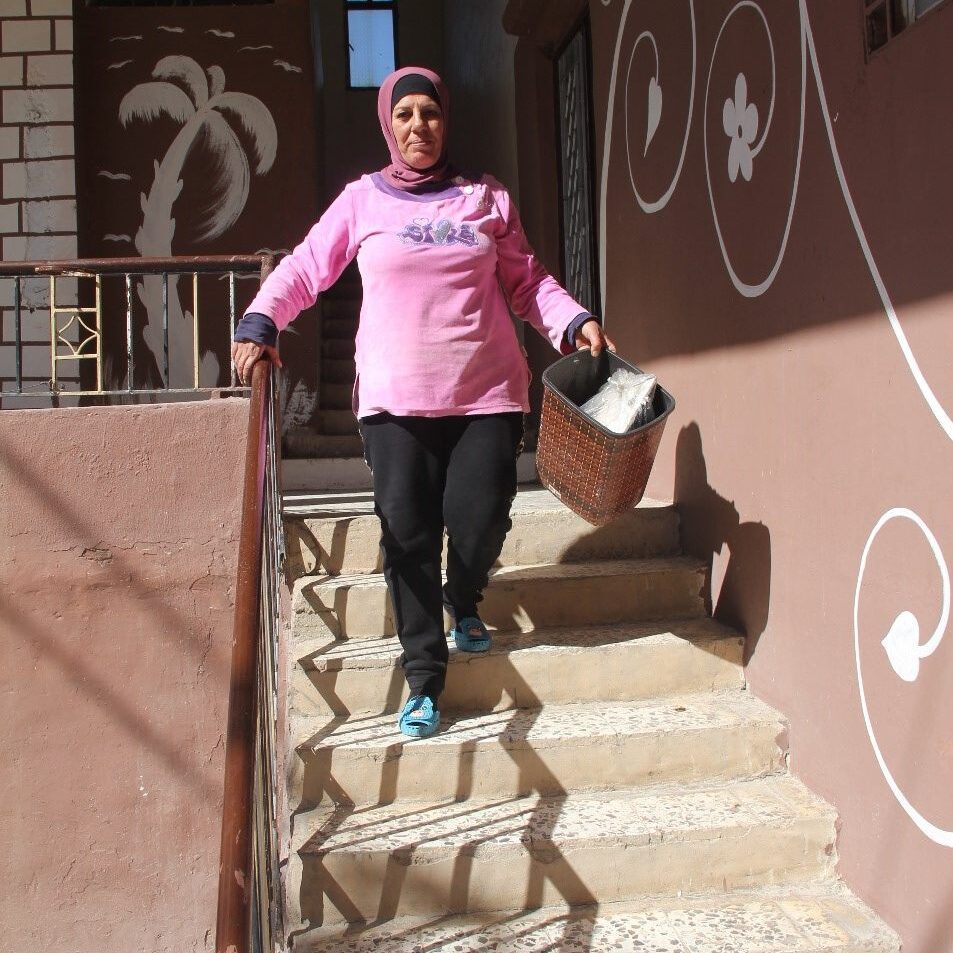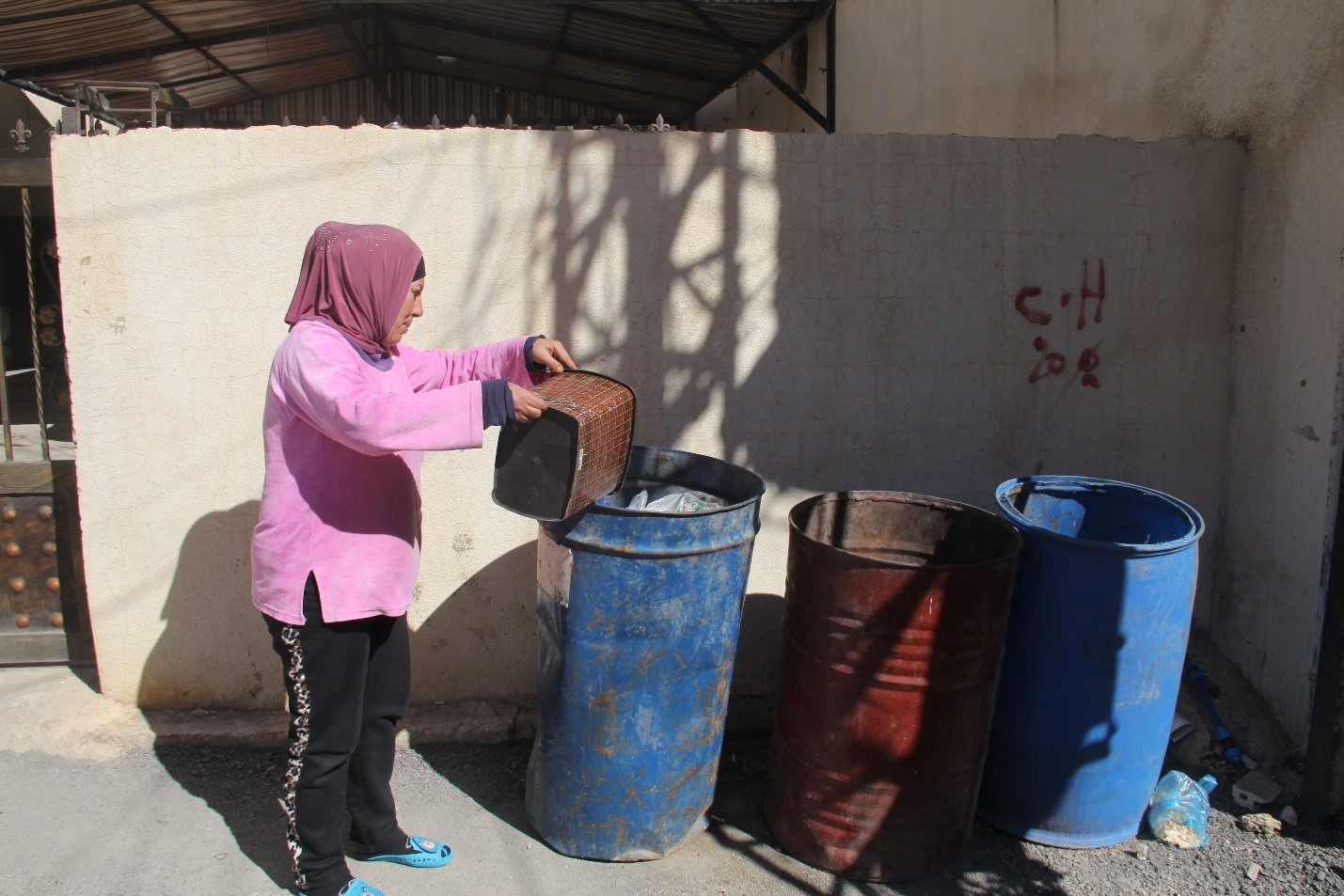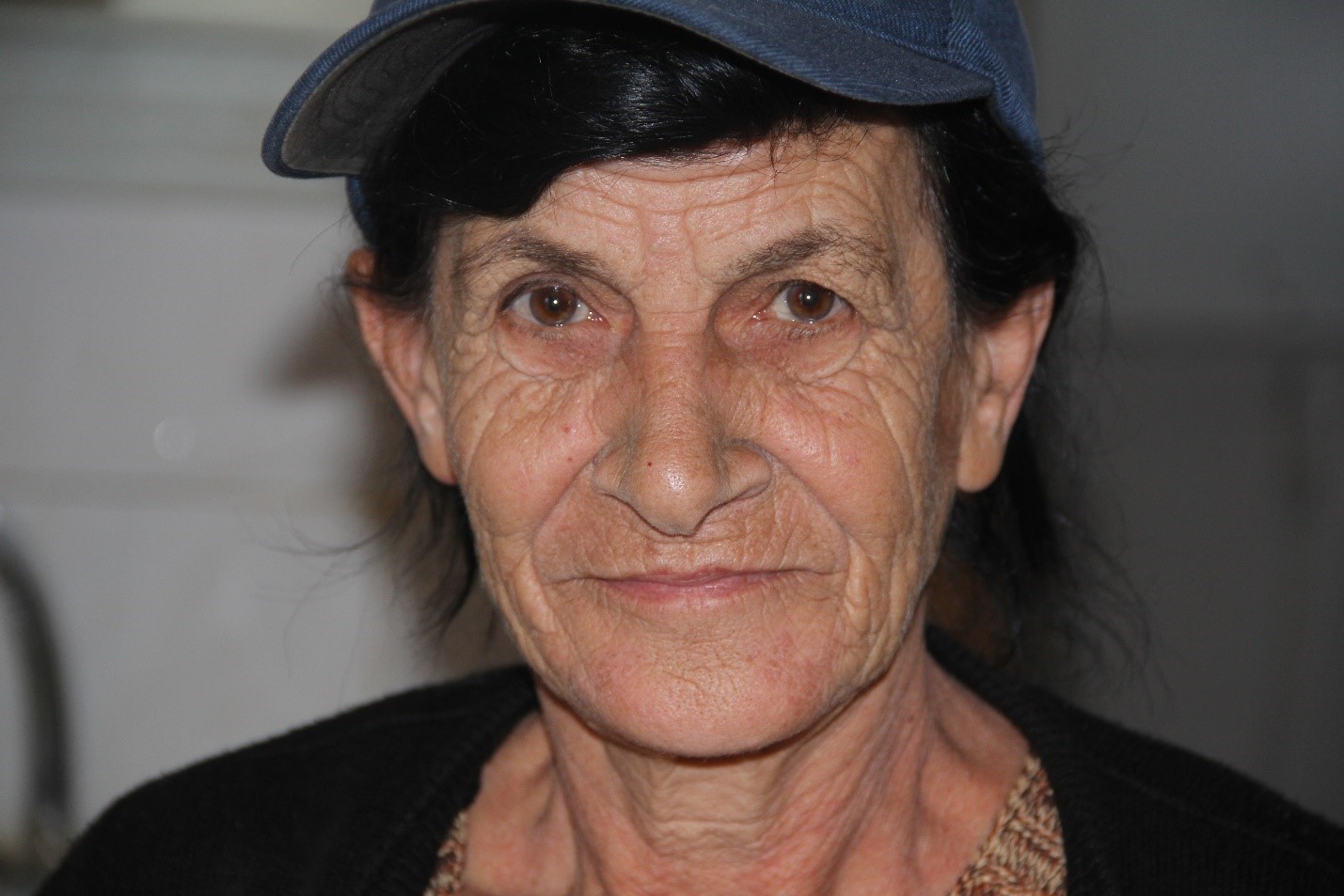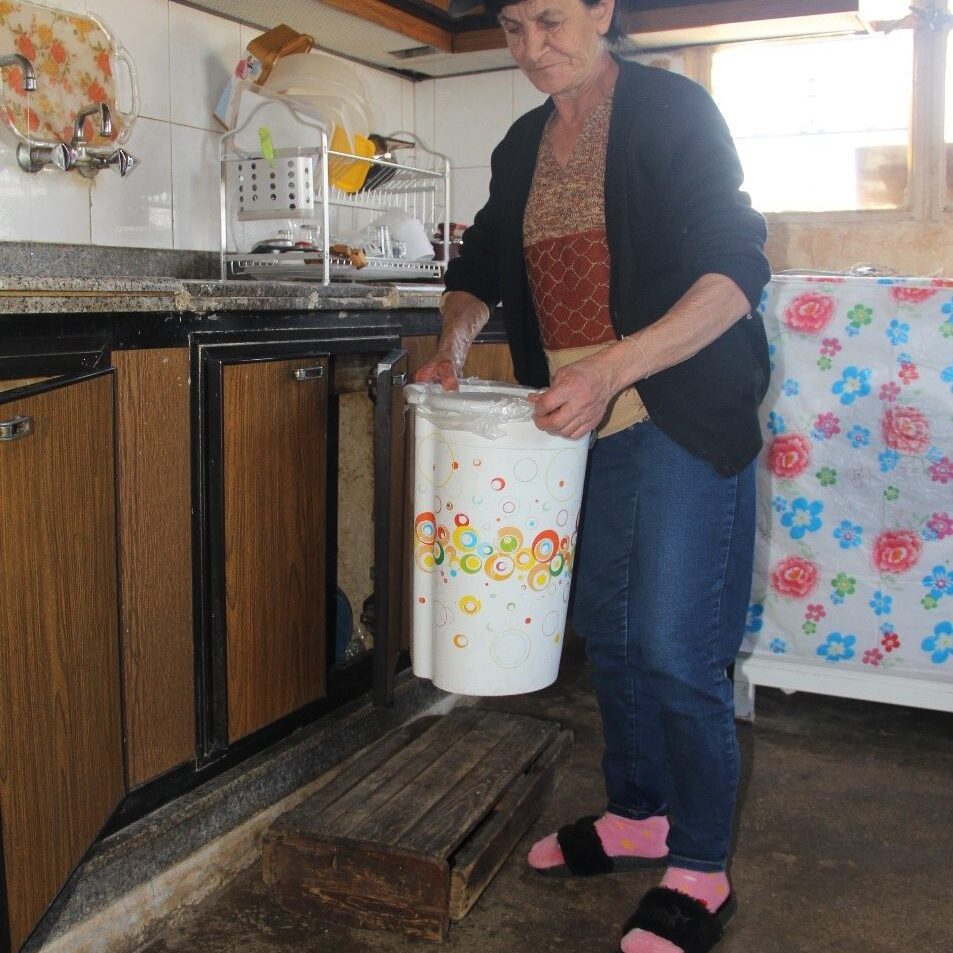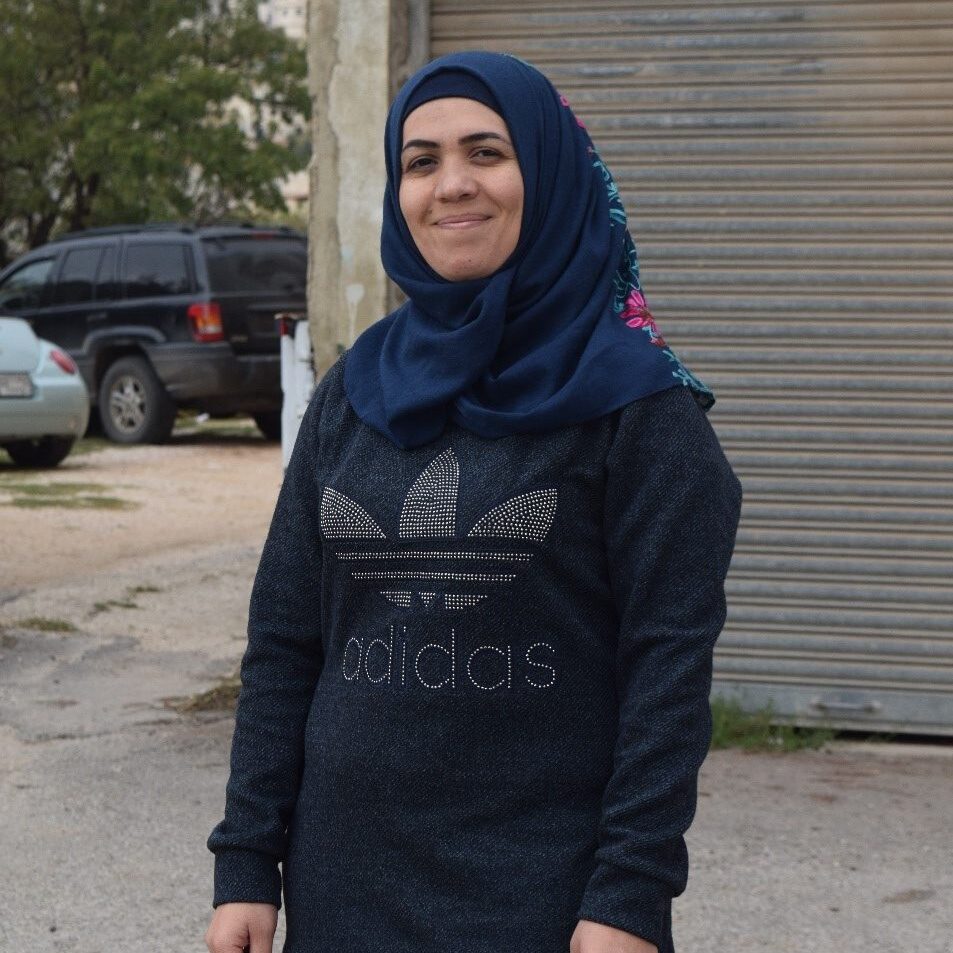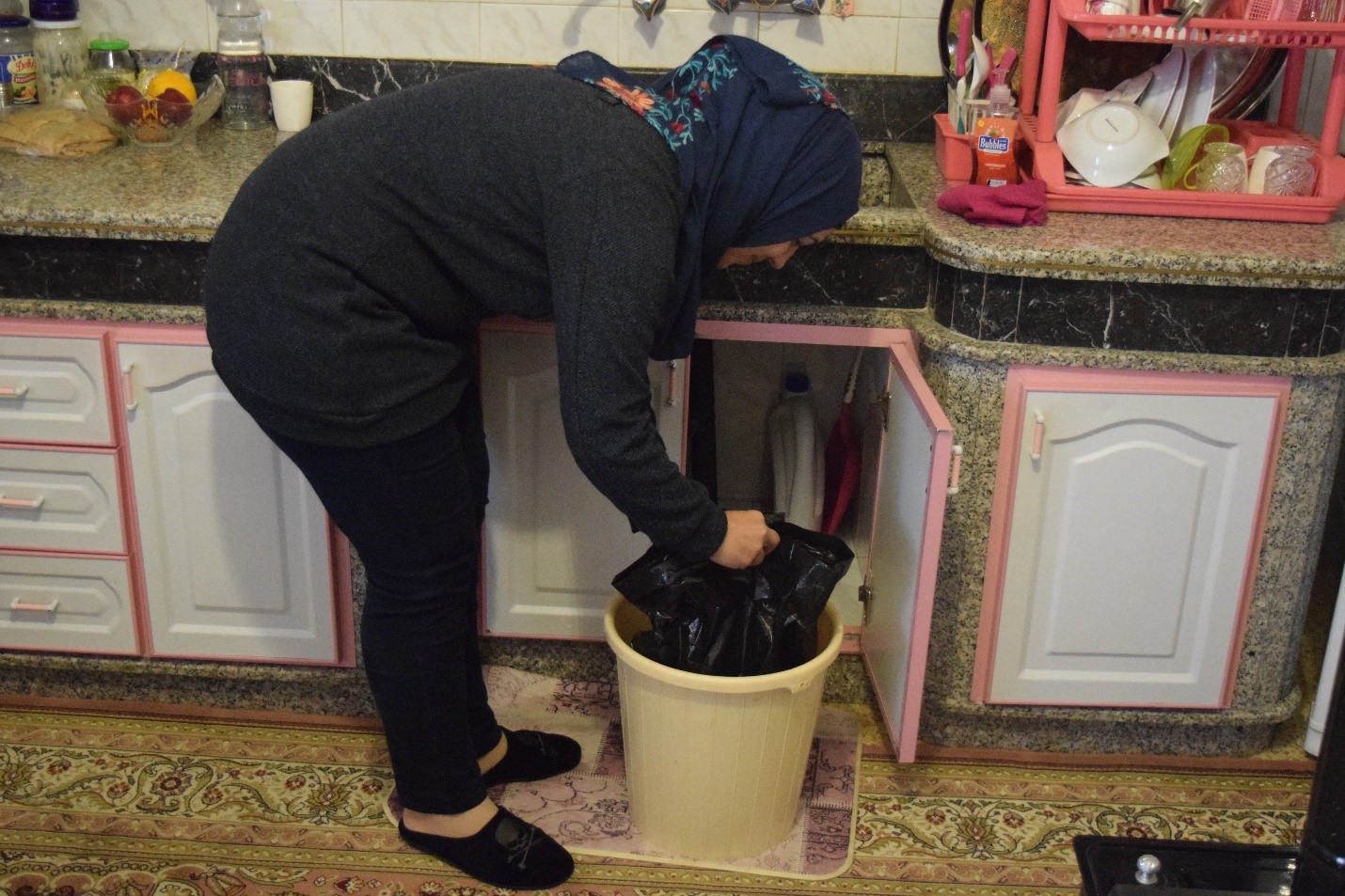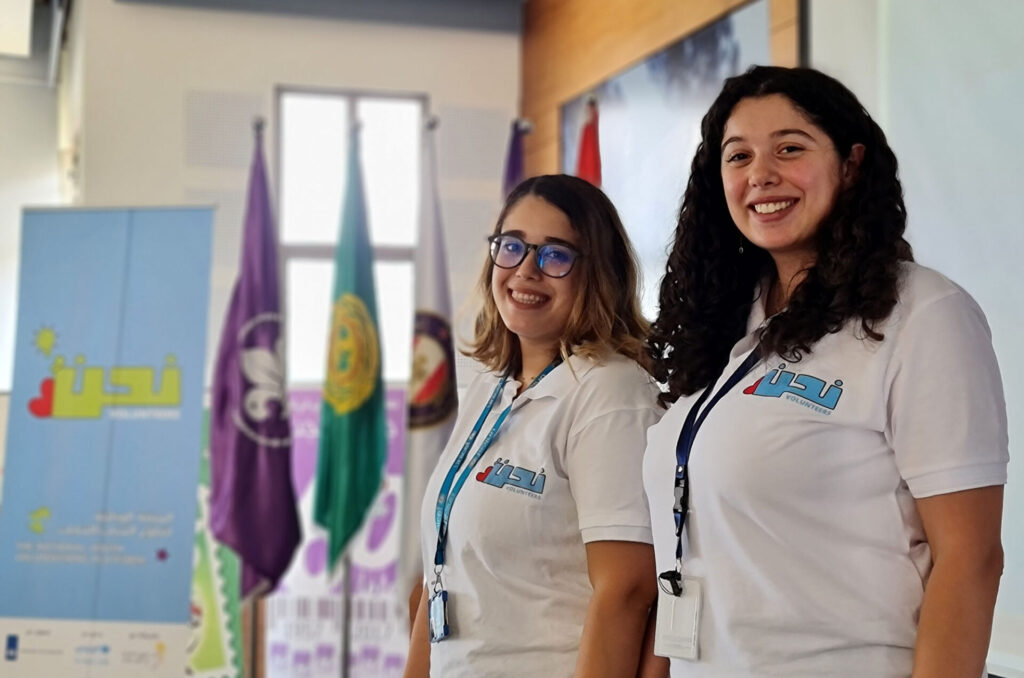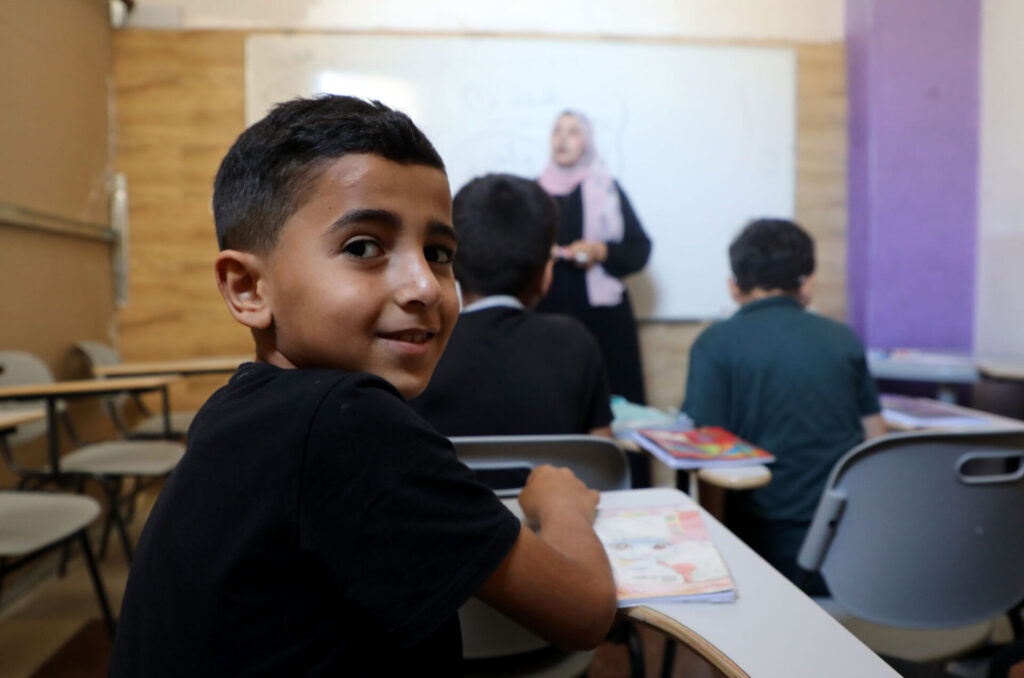Feb, 2019
The ongoing Lebanon garbage crisis along with the influx of Syrian refugees has deeply affected Bekaa Valley communities.
For three Bekaa towns, Anera's recycling and sorting program, which is funded by UNHCR, is providing a solution and changing the culture around environmentalism.
Zahraa Jambeen
Temnin El Foka, Bekaa Valley
“The main issue is that people casually leave garbage on the streets and outside their homes. If it piles up, they burn it and ignore the fact that it may cause harm and lead to health problems."
Zahraa is a Lebanese single mother who works from home. As a mother, she is always worrying about her children’s health and well-being. Lebanon’s garbage crisis adds tension and hardship to an already stressful situation.
“I love Temnin El Foka and do not want to leave! Many people are emigrating, but I am too attached to this beautiful land. I want nothing more than to know that it’s clean and safe."
Zahraa attended recycling and sorting awareness sessions in the Bekaa Valley from volunteers who are part of Anera’s Lebanon recycling and trash sorting project. During the awareness sessions, Zahraa’s interest in recycling grew once she realized Lebanon’s environmental problems are not hopeless.
“There is a point of return and the solution is in our hands! I actually enjoy sorting and recycling. It makes sense. It’s my responsibility to do this and my community has to make it a mission to keep our village clean. We need to do this so we can pass on a healthy environment to our children. One they deserve.”
Madonna Sawan
Al Mansoura, Bekaa Valley
“Hate is a strong word... but I really hate how we deal with our trash in Lebanon!”
Like many concerned citizens of Al Mansoura, Madonna is worried about the future of her hometown and has health concerns about Lebanon’s environment.
“I want to recycle because change starts with me. It starts here at home. The way we currently dispose our trash is sad. Many people burn their trash while it’s in plastic bags, and honestly it stinks! I never thought that my beautiful village could smell that bad.”
Once she was introduced to Anera’s recycling and sorting project, Madonna realized how important it is to raise awareness and reach out to other households. “Knowledge is power. If we can learn, we can change.” A year after Al Mansoura began participating in Anera’s recycling program, Madonna can see some positive change in her community.
“Mansoura was suffocating from the garbage crisis. The smoke of burning waste was becoming a serious threat to our health! At least now we can rest assured that we won’t be inhaling toxic fumes anymore. Our children can enjoy the fresh air, just like our grandparents did long ago.”
Madonna recently learned that Anera would build a new recycling and sorting facility near her hometown in the Bekaa Valley. She is happy that the project is expanding. Looking for ways to minimize her own waste, she avoids single-use plastics and takes a tote bag with her to the vegetable market every time she shops.
Najah Amin
Majdal Anjar, Bekaa Valley
“As a community member and a Lebanese citizen, it’s my duty to keep my home clean, as well as my community.”
Najah is among thousands of locals who are suffering from the garbage crisis in Lebanon. Like most of her neighbors, she used to throw garbage bags outside her house hoping that, maybe, one day the municipality would find a way to get rid of the trash without burning it on the outskirts of her village.
When she learned of Anera’s recycling and sorting program Najah became hopeful. “I am ready to recycle and now I want to be an example for younger people in Majdal Anjar and all of Lebanon. I want to show others how to recycle and sort their trash.”
After a year of recycling and sorting awareness sessions, Najah and the rest of her community are sorting their trash and making best use of the Anera provided recycling bins.
“Recycling and sorting our trash actually improves our lives. We’ve minimized our use of plastics and have even saved money by recycling and reusing certain containers and utensils.”
Afaf Sowan
Majdel Anjar, Bekaa Valley
Afaf went to the municipality of Majdal Anjar complaining about the amount of garbage on the streets, around trash bins and near her home.
“Nobody here sorts their trash, and we live in a rural area. Cats, dogs and other animals are attracted to the unsorted and rotting trash near our homes.”
When Anera’s recycling volunteers asked Afaf if she was willing to sort her trash, she quickly said yes. “Of course I will participate in this program, I already recycle a lot of my trash and I use organic waste to fertilize my land.”
Afaf feels that Anera’s recycling and sorting program is a turning point for Majdal Anjar. She decided to establish a community recycling committee. The committee’s mission is to oversee environmental issues in her neighborhood. This, along with a new recycling and sorting facility Anera is building in the Bekaa, will ensure a garbage-free environment and encourage more people to sort and recycle.
“We can’t accept the smell of burned garbage anymore. We need to ensure a cancer-free future for our children and reverse the environmental damage we’ve caused.”
Hanan Nakhle
Al Mansoura, Bekaa Valley
“My children live abroad and they tell me how their town recycles their garbage after they sort it at home. Countries are using their garbage to make energy. I wish the same for Lebanon!”
For years Al Mansoura burned waste like most communities. Recently, Hanan has been reading the sad local news about Lebanese families living close to garbage wastelands and the increasing number of cancer patients and respiratory diseases.
“We are all suffering from burning garbage fumes. Disease knows no religion, sect or political affiliation. The garbage crisis will hurt us all if we don’t do something about it. Our kids are in danger!”
A year after Anera launched its recycling program in Al Mansoura, Hanan is more mindful of her waste footprint and the need to recycle her garbage. “I collect the organic waste and give it to a farmer who turns it into compost for his land. I also donate all glass items, such as bottles, to refugee families who can clean them and fill them with milk to sell at the local market.”
Hanan is now hopeful about the future of Al Mansoura and Lebanon. “There are fewer plastic bags on the streets and the municipality is taking recycling seriously and making sure they sort our garbage on a regular basis. I will not lose hope!”
Nisreen Tafesh
Temnin El Foka, Bekaa Valley
“I would love to see a garbage-free Temnin El Foka!”
Nisreen has been living in Temnin since she was born and remembers the village being cleaner when she was a little girl. But with an increasing population, deteriorating public services and the influx of Syrian refugees, Temnin El Foka started suffering acutely from Lebanon’s garbage crisis.
“Over the past few years, trash would sit for days outside our house. Our only solution was to burn it. Simply to avoid diseases, flies and the unpleasant odor.”
After a year of participating in Anera’s recycling and sorting training sessions, Nisreen is starting to see tangible differences in her community. “I now believe we're in safe hands. We needed experts to shed light on these environmental issues and work with us towards a solution.”
Anera is building a new recycling and sorting facility in Temnin El Foka and the entire village is aware of the importance of sorting their trash at home.
“From now on, no more garbage smoke and horrible smells. Our environment will be able to heal and we must commit to keep it clean no matter what!”

